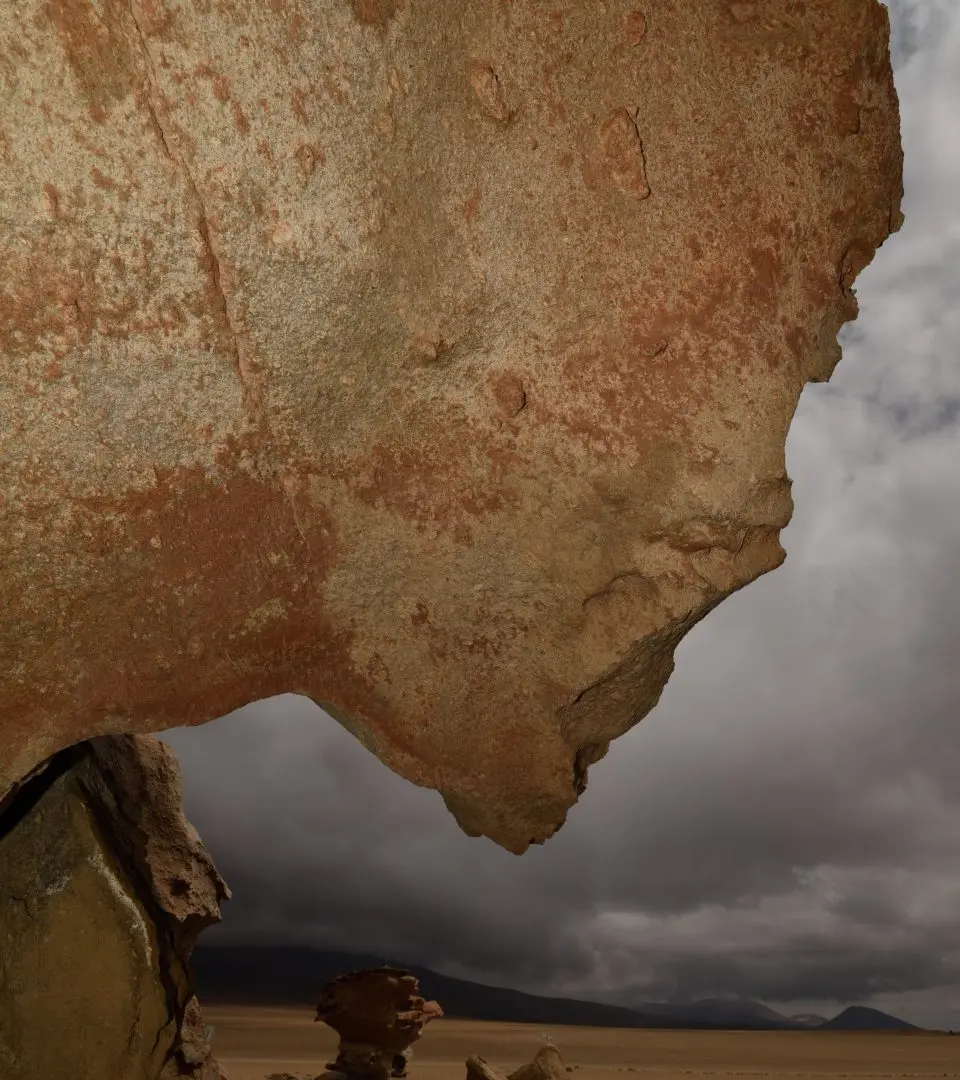When we founded TAKT four years ago, we said that there was too much hot air around sustainability. We made it our mission to design, build and sell furniture in revolutionary, sustainable and transparent ways. From the beginning, we have clearly explained the efforts we make to help our customers live sustainably.
For Global Earth Day 2023, we are using our platform to bring multimedia storyteller Pamela EA’s important platform, Climate Words, to a larger audience. Like us, Pamela wants more people to understand the meaning behind the words used to describe our climate emergency. Pamela has just received The World Around’s Young Climate Prize at an event at the Guggenheim Museum in New York, which aims to amplify and accelerate the impact of projects for climate resilience.
We spoke to Pamela EA about her story…


Image credit: Pamela EA
Hey Pamela, how did your journey to climate activism begin?
It all started in the summer of 2016, before I started college, when I noticed that the ocean had more plastic in it than fish. The sight filled me with anger towards my local community, which I initially blamed for the state of the ocean. I was aware of the problem’s gravity, but I didn’t understand its root causes.
To raise awareness and convince people to take action, I channelled my outrage into drawing cartoons and creating stickers, which I distributed to local restaurants. I also organised beach clean-ups and gave talks to raise awareness of the plastic pollution crisis.
However, during my two-year campaign against plastic pollution, I came to understand that the fossil fuel industry’s production of plastics was the root cause of the crisis, not individual behaviour. Recycling, as it turns out, was a strategy promoted by the oil industry as a means of shifting the responsibility for waste onto consumers, according to a report by NPR. While all plastic can be recycled, the process of collecting, sorting, and melting it down is expensive and not profitable for the fossil fuel industry. Conversely, producing new plastic is cheaper, of higher quality, and generates more profit for the industry. As a result, less than 9% of plastic waste has ever been recycled.
These vast, global problems can feel overwhelming to individuals. How did you translate your experience into positive action?
I joined forces with Fridays for Future and Extinction Rebellion to organise protests, strikes, and campaigns aimed at raising awareness about the impact of climate change and removing the fossil fuel industry’s presence from universities, media, financial institutions, and negotiating spaces. However, I soon noticed that the mainstream media only covered certain, centralised aspects of the youth climate movement, ignoring the voices of the lesser-known organisers. Consequently, I began documenting the movement myself to amplify their voices and create a more accurate portrayal of the movement and its goals.
In 2020, when the Covid-19 pandemic hit, I documented the experiences of 21 youth activists worldwide in ‘The Year of Virtual Activism’ ahead of COP26, the United Nations Climate Conference. Through rethinking my activism methods during the pandemic, I discovered the Escazú Agreement, an agreement that aims to guarantee every person’s right to a healthy environment and to access information, participation, and justice in environmental matters.

Image credit: Pamela EA
Given the significant impact that this agreement could have on our country and region, and considering the fact that we hold the record for the highest number of environmental defenders killed every year for the past decade, I teamed up with four other passionate youth activists to establish a national campaign and mobilise people to sign it.
Throughout the campaign, we noticed a gap in how the Global North portrayed the climate crisis in Latin America, largely ignoring the social injustices linked to the crisis, especially in the region. It was during this campaign that we discovered the majority of youth activists leading climate campaigns in their respective countries were women. Witnessing the need for intersectional activism for climate justice in Latin America and the Caribbean, we founded “Latinas for Climate,” an International Network of Young Feminists for Intersectional Climate Justice in Latin America and the Caribbean.


Image credit: Pamela EA
When did you identify language as a target for your climate campaigning?
As I attended COP26 in 2021, I noticed that much of the language being used was inaccessible to those outside the science and policy fields. Additionally, certain words, such as “sustainability,” “diversity,” and “net-zero,” were being misused and exaggerated for greenwashing and political messaging.
Upon further research, I discovered that climate literacy is worryingly low, showing a lack in resources surrounding climate language and vocabulary. A 2021 survey found, less than 15% of respondents in Germany, France, Italy, UK, and the US proved to be climate literate, and increased climate literacy correlates directly with increased climate action.
Having identified this gap in climate education, I co-founded Climate Words with Valentin Abend, an architect and climate educator. Our project aims to promote climate literacy by curating an extensive lexicon of keywords submitted by experts on the frontlines. The website is a database that documents climate solutions, portraying a cross-section of inspiring leaders in an interdisciplinary range of fields, creating an online community of informed climate optimists.
We recognize the crucial role of language in the movement. We are using design and photography to bridge the communication gaps so that together we can act on climate.
Your story will be so inspiring to our readers. How should they engage with your campaign?
We have just been awarded the Young Climate Voice 2023 prize, so look out for me speaking about the project at the Guggenheim Earth Day Summit. Currently, we are working on how to develop the platform, which needs funding. If you want to support our movement to promote climate literacy, please consider a one-time or monthly donation.


Image credit: Pamela EA
Thanks, Pamela, for sharing Climate Words with us, and congratulations on the recent award!
